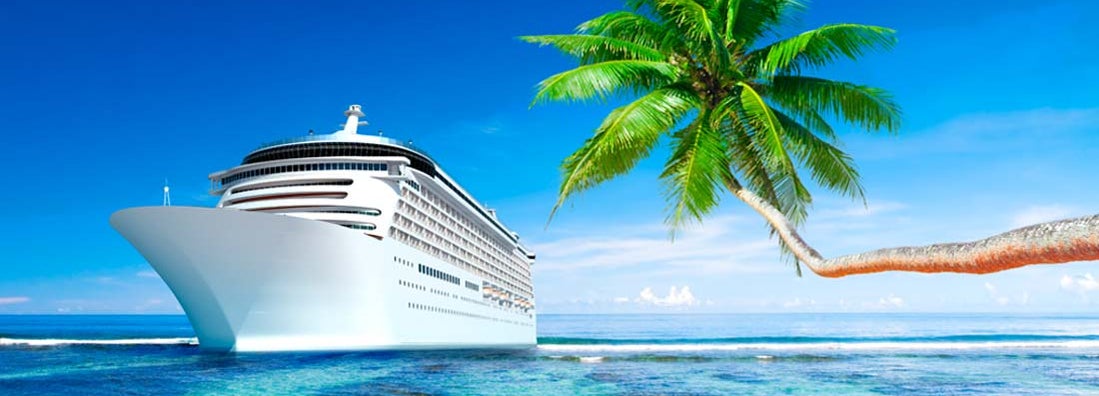How to Insure a Cruise Ship

Candace Jenkins is a licensed insurance advisor with over a decade of experience. She is also a writer and loves to write on all things insurance. Candace writes for TrustedChoice.com on a continuous basis and is here with the facts about all your insurance inquiries.

All businesses need to be protected, especially when it's on a big boat in the middle of the ocean. There are risks of all kinds that need protecting, and here's what an independent insurance agent would keep in mind when trying to find the right coverage for a cruise ship.
How Do You Insure a Cruise Ship?
Vacationing on a cruise ship has been a tradition since 1960. While there were undoubtedly cruise liners that sailed on voyages to and from different continents, however, it did not become popular until 1960.
Some of the largest cruise ships today are over a thousand feet in overall length and can hold over 6,000 passengers at a time. Because you're floating on a massive body of water with that many people, you can imagine the liability exposure. Take the Titanic, for instance, a tragic example of what can go wrong aboard even a gigantic vessel.

So what the insurance is for one of these large, seaworthy ships? The following coverages would apply:
- Property coverage: This would be coverage for the business personal property that is within the boat and not permanently attached to the vessel.
- Physical damage coverage: This would provide coverage for the vessel itself against accidental loss or damage to the boat and machinery.
- Ship coverage: This would be coverage for the ship itself, and it would likely have a higher retention limit involved similar to a deductible. When you are talking about insuring items that are millions and millions of dollars, the insurance company will have the owner foot a decent portion first. Then, when a catastrophic claim occurs, the carrier will kick in the rest.
- General liability coverage: This would be coverage for bodily injury and property damage to others, such as passengers who slip and fall while on the vessel or lose their personal belongings in a cabin fire.
- Longshore and Harbor Workers' Compensation Act: This is a federal law that provides workers' compensation coverage for ship employees, also known as a crew, if they are injured or become ill as a result of their job. This act applies to most workers whose job duties are related to taking care of a ship or working the docks. It may also refer to any contractor or crew member who is injured or ill in the navigatable waters of the United States and surrounding areas.
Vital Property and Physical Damage Coverage for a Cruise Ship
A cruise ship has property needs, much like your pontoon, fishing boat, or yacht. A cruise ship will need millions of dollars in coverage to adequately insure the vessel. On average, a 500-passenger cruise ship will run around $260 million. That is why most insurance companies will require the owner to have a high retention limit so they don't have to pay for the entire bill themselves.
Another coverage is property coverage for the cruise ship's belongings and inventory. Anything that is not permanently attached to the vessel itself can usually be included in the coverage amount.
While you may not be in the market for a cruise ship, your personal boat would fall under these same coverages, just not in the same amounts.
Speak with your independent insurance agent to get the exact coverage and premiums for your little cruiser.
Essential Liability Coverage for a Cruise Ship
When you think of cruise ships, you may think of fun and relaxation. When insurance companies think of cruise ships, they see liability exposures. Today's largest cruise liners can carry over 6,000 passengers. That's 6,000 people that your cruise ship is responsible for if they get injured or ill while on your vessel.
Remember the Costa Concordia that partially sunk back in 2012 with a whole crew and passenger list aboard? Thirty-two people died, and sixty-four were injured. Talk about a liability payout from that ship's insurance company. If you have passengers big or small on any vessel, your insurance is on the line, and hopefully, it's a good policy from a knowledgeable independent insurance agent.
Longshore and Harbor Workers' Compensation Act for Cruise Ships
There is a federal law called the Longshore and Harbor Workers' Compensation Act that is available to employees and crew members who work in navigable waters when they get hurt or ill on the job. This coverage is only open when the employee is in US waters and adjoining areas.
When it comes to your ship, you may be sailing on a lake or river, and if you're running a small tour guide business, you may have an employee. That employee should have workers' compensation coverage available so they are covered while working for you. Any workers' compensation policy will supply protection not only for your employees but also for your business. Think about it this way, would you rather be personally sued for medical expenses and damages, or would you rather have your workers' compensation policy pick up the tab? The choice is yours, and every state except for one makes coverage mandatory in some form or another.
Pools, Spas, and Restaurant Insurance on a Cruise Ship
Your cruise ship is a town, and as such, each piece needs to be accounted for when it comes to insuring it properly. Cruise ships today come fully loaded with malls, restaurants, bars, and your very own spa for pampering.
Those are like little businesses within a large business, and while they are all connected to the same ship, they require the same coverages as if they were separate. Insurance companies will have guidelines and safety measures that must be adhered to just like on dry land.
Some safety measures insurance companies may require:
- All kitchen equipment msut be regularly inspected and signed off on.
- All pools, water slides, and the like need to have fencing around them and a lifeguard on duty at all times.
- Cruise ship malls and retail stores need surveillance cameras and security systems to avoid and deter theft and robbery.
- All spa staff that deals with the physical touching of passengers as in massages or facials need to obtain a sexual misconduct policy.
- All employees need to have regularly scheduled safety meetings and a safety officer or manager to be named.
If you don't own a massive cruise ship, then you likely won't need coverages for these items. However, checking on all your boats or mini-cruise liners exposures with your independent insurance agent is essential.
Liquor Liability Insurance on a Cruise Ship
Often called a city on water, the cruise ship has restaurants and bars just like any other city, and with that comes alcohol. These adult beverages pose a liability issue if a passenger has one too many and decides to fall overboard. Even though that patron should have had the self-control not to consume so much alcohol, because your ship's bar served it to them, you're ultimately responsible. That is where liquor liability comes into play.
Liquor liability is liability insurance for alcohol-related bodily injury or property damage incidents. Any restaurant or bar, whether they are on a boat or not, will need liquor liability insurance to be adequately protected.
What if Your Cruise Ship Has a "Flat Tire"?
If your cruise ship breaks down at sea or has an epidemic of some sort that puts your vessel out of commission for a time, you'll want some coverage. Business income coverage will typically supply for physical covered losses or perils such as weather-related events like a tornado, fire, hail, or lighting. An epidemic is a gray area in some policies. An investigation will have to be done to determine what type of infectious disease broke loose or if it was a bad case of food poisoning.
All in all, you'll need to talk with your independent insurance agent to determine coverage from your insurance carrier.
How Much Would It Cost to Insure a Cruise Ship?
A cruise ship will cost a pretty penny to insure. Between liability, property, physical damage, workers' compensation, and more, you'll have multiple insurance policies. When you own a cruise ship, you're going big, and that requires big insurance. Premiums will be different for every owner.
No matter if you own a small fishing boat or a giant ocean liner, your coverage will be specific and unique to you and your business. Now, the more you have to insure, the more premium you will pay. Let's face it, the cost to insure a $260 million cruise ship is not the same as to insure a speed boat.
Here's How an Independent Insurance Agent Would Help
Independent insurance agents have access to multiple insurance companies, ultimately finding you the best coverage, accessibility, and competitive pricing while working for you. Find an independent insurance agent in your community here.